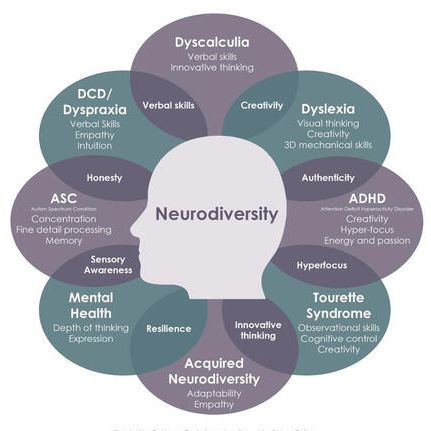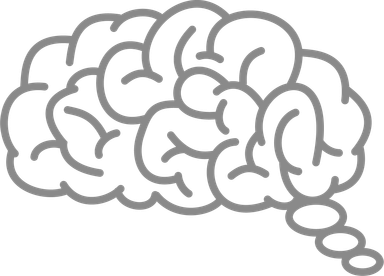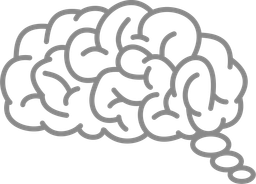
Neurodiversity
Neurodiversity is an umbrella term to cover a number of neurodevelopmental conditions where a person's brain works in a different way than the majority (or neurotypical). Some of the conditions considered neurodiverse include:
- Acquired brain injury
- ADHD
- Autism
- Dissociative Identity Disorder
- Dyscalculia
- Dysgraphia
- Dyslexia
- Dyspraxia
- Oppositional Defiant Disorder
- Pathological Demand Avoidance
- Sensory Processing Disorder
- Synesthesia
- Tourette’s Syndrome
Being neurodivergent does not mean that you have a mental illness. Like any difference, being neurodivergent can create challenges for daily life, and more so for unexpected events. Feeling different, out of place or misunderstood can be isolating, frustrating, or frightening. Living and working in a world designed by and for the neurotypical may lead to the development of anxiety, low mood or unhelpful coping mechanisms. These differences are often ‘hard-wired’ in the brain, and though they cannot be ‘cured’ we can learn to recognise and manage them.
Working together I can help you to recognise the challenges in your life and how your strengths can help you build confidence and acceptance.
Parents and Carers
You may feel that your loved one is not ready for counselling or is already being supported elsewhere. I am able to support you or a family member with any difficulties, providing an understanding of and empathy with the complexities of your family situation.
How I can support your loved one
- Client safety and comfort is my priority. I structure sessions to accommodate each individual
- I can meet clients online at first if this helps to build trust and familiarity
- I understand the need for stimming behaviours and have a selection of fidget tools available for use in sessions, or clients may bring their own
- I can use clients' special interest topics to build communication
- If necessary I can gradually build up session length
- I understand the need for clear and concise communication
We need your consent to load the translations
We use a third-party service to translate the website content that may collect data about your activity. Please review the details and accept the service to view the translations.

